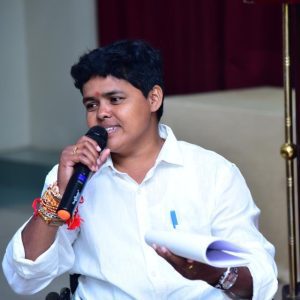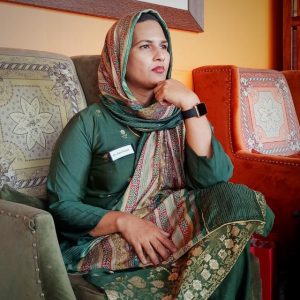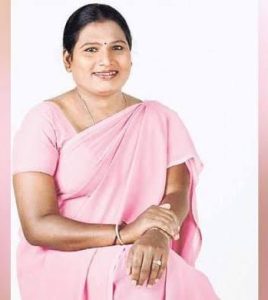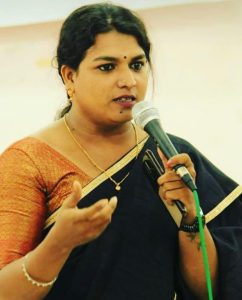Amid challenges in getting benefits under the Ayushman Bharat-Pradhan Mantri Jan Aarogya Scheme, activists seek ground-level consultation.

Tansgender persons to now be included in the union government's flagship healthcare scheme/Flickr
Only 2 percent of the transgender community can avail of the much-applauded “master package” under the Ayushman Bharat-Pradhan Mantri Jan Aarogya Scheme, according to prominent members of the community.
Though the transgender community welcomed the move by the government, they sought immediate attention to certain challenges they might face in availing of these services.
Dr Aqsa Shaikh — a transgender activist and assistant professor of Community Medicine at Hamdard Institute of Medical Sciences and Research (HIMSR) — told South First: “The announcement by the government is a step in the right direction. But, when it comes to implementing it there will be several challenges.”
She explained: “First of all, the scheme is limited to only people who possess transgender ID cards (TG cards). Currently, only around 2 percent of the transgender community has these cards.”

Kiran Nayak B, Founder, KarnatakaTransman and Intersex Group working towards transgender rights. (Supplied)
Society for Transmen Action and Rights founder Kiran Nayak B concurred.
Nayak, a transman who works with transpersons in Karnataka, Andhra Pradesh, and Telangana, said, “I am happy the government is at least now thinking about my community. But, first of all, getting a TG card itself is a big problem in many states. I myself have been waiting for it for two years.”
The National Health Authority (NHA) and the Union Social Justice and Empowerment Ministry on Wednesday, 24 August, signed a memorandum of understanding to extend the Ayushman Bharat plan to transgender persons.
The government, in an official statement, said a comprehensive “master package” was being planned for the community including the AB PM-JAY package and specific procedures, such as sex-reassignment surgery and treatment.

Dr Aqsa Shaikh is transgender, and also an associate professor at the Department of Community Medicine at Hamdard Institute of Medial Sciences and Research in New Delhi. (Supplied)
Shaikh said that, unfortunately, it is very difficult for transpeople to access healthcare services under the current system as they may not have documents in their legal name or correct gender, and that can create issues and biases in healthcare workers.
“The entire system of healthcare provision is very binary, and even laws — whether it is MTP Act or Surrogacy Act — exclude transpersons. So, reforms are needed in a lot of places so transpersons can access healthcare.”
Hyderabad-based Buddhist monastic and queer rights activist Tashi Choedup raised some other questions.
Speaking to South First, they noted: “The Central government passed the Transgender Persons (Protection of Rights) Act in 2019, and brought in rules sometime in 2020 — during the pandemic — without any consultation of the community.”
Choedup asked: “Since then, has the government checked how many even have managed to get the TG cards? What have been the challenges to avail this?”
They opined that the Central government was going around making announcements but not really implementing them or checking on any of the challenges on the ground.
Choedup also said, “Has the government checked whether the medical community has been trained to perform some of these complex life-saving surgeries? Do empanelled private hospitals have good doctors and treatment facilities? Forget all these. Many district magistrates and collectors are not even aware of the process of issuing the ID cards!”

Tashi Choedup, a transgender Buddhist monastic working to spread awareness about gender identity in India. (Supplied)
Choedup explained that across states, several district magistrates seek a psychologist’s certificate to even issue an application for the cards.
“Where will a transgender go and get those things? They also say that a compulsory sex change surgery should have been done to avail the ID,” they explained.
“Now, if we are getting the Ayushman Bharat benefit for the surgery, how do we get the ID card before the surgery?” they asked.
“Also, many do not know that they don’t require a medical or physical examination to obtain the ID,” they added.
Nayak said the situation was the same in Karnataka. “We are asked for residential verification. There is so much stigma, and several of the members of my community have not informed their families yet about their gender identification. Won’t this process cause more problems?” they asked.
Nayak explained that the Central government’s move to let transpersons apply for the cards online was also complicated. He said it required an affidavit from the lawyers.
“We have to shell out money for all this. Even after we get the affidavit, there is no screening committee or board set up in Karnataka, so district officers sit on it,” they said.
The application itself is said to be eight pages long, and too complicated to be filled by someone who is not literate, let alone computer-literate.
Citing an example of the Chikkaballapura district, where Nayak resides and works, he said about 4,000 transgenders under an organisation called Nisarga were waiting for the ID cards.
Shaikh said, “The application process is online. One needs to submit an affidavit, but many applications are rejected or are pending.”
“The inclusion of Sex Reassignment Surgeries (SRS) under the AB Scheme is definitely a great move for us. But do we have enough doctors who know how to perform these surgeries safely? At least Karnataka doesn’t,” said trans-rights activist Chandani.

Chandini, a transrights activist and the founder of Payana, an NGO that works for the protection of sexual minorities in Karnataka. (Supplied)
She explained that the distress caused by not having one’s body match their gender identity was the biggest struggle of any transgender person.
The pain that they go through during this whole process was something that cannot be expressed in words, she added.
“While the treatment in private hospitals (that too very few) costs ₹1.5-2 lakh, that too only for top surgery (breast removal or implantation), the hormonal therapy costs about ₹300-400 per visit. We are all struggling, with no one from the government listening to us,” Chandani explained.
Kiran added, “The ‘bottom surgeries’ (change of genitals) have not been successful at all. Even though we really want to get that done, no one dares to go for it, either because they cannot afford the cost of up to ₹8-10 lakh or because there are no good doctors to perform it.”
While some private hospitals in Karnataka, like Aster Hospital, MS Ramaiah Hospital, and Apeksha Hospital in Yelahanka, have doctors performing SRS, the community members wonder if the government would empanel these hospitals under the AB Scheme.
The Victoria Hospital in Karnataka is a government hospital that performs SRS, but many from the community shy away from visiting these places because they fear the doctors might not be competent for such surgeries, or might be transphobic. They say even the staff there are not aware of how to behave with them.
Chandani said, “Most people in my community raise money through crowdfunding platforms or donations, or take loans, and then go to private hospitals for surgeries. They don’t wish to go to government hospitals. The Central government should look into these if this announcement has to really benefit the community.”
Meanwhile, states like Kerala and Tamil Nadu fare better when it comes to addressing the healthcare of the transgender community.

Syama S Prabha, state project officer at the Transgender Cell under the Kerala Social Justice Department. (Supplied)
Syama S Prabha, state project officer at the Transgender Cell under the Kerala Social Justice Department, said the department there provides ₹5 lakh for transmen and ₹2.5 lakh for transwomen for gender-affirming surgical procedures, and it is a reimbursement process.
“While the AB-Scheme-empanelled hospitals in government setups do not have the provision to perform gender-affirming surgeries in Kerala, there are one or two private hospitals that provide these surgery options. Others are out of Kerala,” she said.
“However, the Kerala government’s Social Justice Department does reimburse the surgery amount if the procedure is done anywhere within the country. The state government also provides an aftercare pension for one year, which is ₹36,000,” added Prabha.

Rose Venkatesan from Chennai said the Tamil Nadu government was making an effort in providing healthcare benefits to the transgender community. (Supplied)
Meanwhile, praising the Tamil Nadu government for having addressed most of the gaps with regard to the welfare of the transgender community, state-based transgender celebrity and LGBTQ+ activist Rose Venkatesan told South First, “The central government is finally waking up under pressure from society as well as courts to consider the welfare of transgender people. It is a welcome move.”
She added: “The inclusion of facilities for accessing SRS is very helpful. This is just a start. I think this will, over time, allow the government and activists to sit together and discuss the gaps, and they can be addressed easily. However, the government should also screen doctors, hospitals, and clinics that offer the appropriate services, and empanel them accordingly. Otherwise, it won’t benefit anyone.”
According to Rose, all transgender women in Tamil Nadu have been screened and given TG cards as there is a welfare board and as there is a tried-and-tested procedure.
Transgender activists and representatives from the community opined that the Central government, along with the respective state governments, should have discussions with them on the challenges they are facing in accessing healthcare.
“A discussion on the ground reality, consultation with the community to understand what the issues are, and challenges in accessing medical care… What can one do to ensure they get general medical care? Even getting that care has been a great challenge, especially for transpersons with HIV,” said Choedup.
Meanwhile, shaikh said it was it’s very important that these services were provided in the government setup and the guidelines made available so that the services were regulated and affordable.

Apr 24, 2024

Apr 24, 2024

Apr 24, 2024

Apr 24, 2024

Apr 24, 2024

Apr 24, 2024